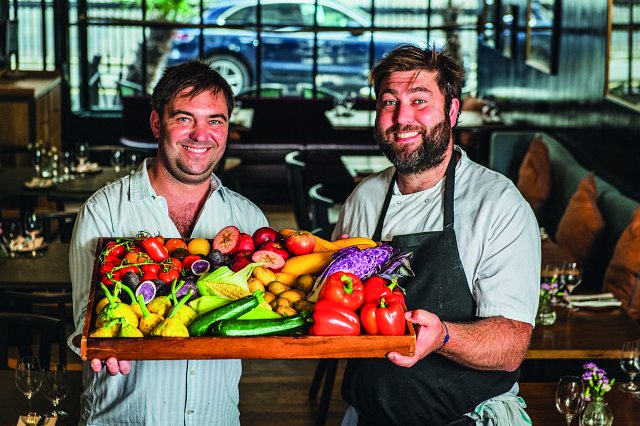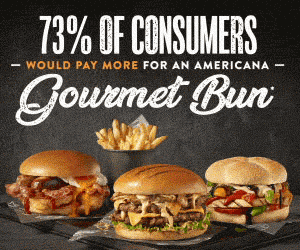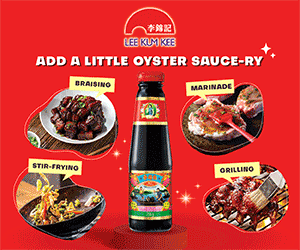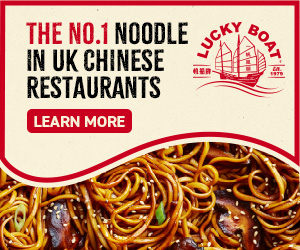Feature: Climate-conscious hospitality

Building connections with like-minded businesses and individuals is key to lowering the sector’s collective carbon footprint
There is no shortage of research into the impact of the global climate crisis. As a fast-developing, global threat with tangible real-world consequences, investment in this area of study is our only route to a long-term solution.
An interesting yet possibly lesser-known field of research relates to the climate language barrier between businesses and consumers. A recent survey by insights firm Trajectory and communications agency Fleet Street reveals that just 11% of consumers feel they have a thorough understanding of the term ‘carbon offsetting’ (the action or process of compensating for carbon dioxide emissions), despite it being one of the primary methods that businesses depend on to achieve net zero goals.
‘Circular economy’ is another phrase widely used by brands and is yet understood by staggeringly few, with just 4% of consumers claiming to be able to give a confident definition. Other grey area climate terms include ‘green’ (25%), ‘sustainability’ (26%) and ‘organic’ (32%). So, what about your staff? If guests are struggling to keep up with the ever-evolving cycle of industry buzzwords, similar feelings are likely to be harboured among members of your team.
“The single largest issue around sustainability is education about what the term really means, how wide the issues are and also how wide-reaching the solutions can be,” says Anthony Pender, founder of Hammersmith-based seafood restaurant Faber.
“Hospitality is made up of both small and large organisations with complex supply chains, especially for many of us dealing with fresh ingredients.
“It won’t come as a surprise, but money is always the big issue for businesses of all sizes. Offsetting environmental impact against financial viability is tough at the best of times – in the current economic situation it’s even harder. But, that said, it’s certainly not impossible.”
The Gladwin Brothers – Richard, Oliver and Gregory – first established Local & Wild (L&W) in 2012. With one being a farmer, the other a chef and the third a restaurateur, the siblings used their unique skills and insights to create a restaurant group, extending their farm-to-fork way of life into London. The four brands – The Shed, Rabbit, Sussex and The Black Lamb – serve modern and seasonal cuisine, with menus centred on British produce sourced from local farmers, hedgerows and the surrounding coast. According to Richard, who also serves as the group’s managing director, employee education remains a substantial hurdle for operators striving to improve their business’s environmental impact.
“The lack of awareness regarding the possibilities and benefits of adopting sustainable practices can hinder their integration into the core fabric of restaurant operations,” he states, adding that a common misconception is the belief that embracing sustainability entails higher costs. This misconception, he adds, coupled with the delayed visibility of tangible results, occasionally leads restaurants to opt for quicker, albeit potentially less sustainable, alternatives to ensure day-to-day operational smoothness.
“Inspiring our team to embrace environmental consciousness is integral to our ethos,” he notes. “Through regular training sessions, including wine training at our own Nutbourne Vineyard, we immerse staff in the significance of seasonal ingredients, shaping our menus with the guiding principle of ‘What grows together goes together’.”
Building on practices
A big focus for the L&W team this year is elevating sustainable practices already firmly in place. “From dehydrating and pickling foods to collaborating with sustainable oil providers for the creation of renewable, low-carbon biodiesel from our used oils, we’ve made substantial strides,” says Gladwin. “However, we do acknowledge food waste as an ongoing, prevalent issue in hospitality, so our commitment extends to refining our approach in this area.”

Image: Local & Wild
The group already repurposes scraps and bones for broth, on top of extending shelf-life through pickling, but 2024 is about taking these efforts even further. Here, head chef Oliver Gladwin plays a pivotal role, generously sharing his butchery expertise to demonstrate the art of using the entire animal, significantly minimising waste.
“Our pursuit of zero-waste goals not only cultivates creativity within the team, but also encourages innovative approaches to daily dish preparation. By imparting knowledge about ingredient provenance, we ensure that our team passionately conveys the essence of our sustainable farm-to-fork concept to guests.”
As restaurateurs, you have a responsibility to ensure your menu and entire kitchen output has the lowest possible carbon footprint. As Andy Hope-Johnstone, head of foodservice for plant-based meat brand Planted, explains: “A proactive step to reducing your carbon footprint is to offer better made, better sourced and a better variety of dishes for people looking to make greener choices when dining out.”
Creating options around local and seasonal produce is a great place to start, as well as frozen, tinned and dried goods that can be ordered in bulk to reduce food miles. “Where items may be difficult to obtain or are simply too expensive, chefs could consider how to extend their shelf life – such as by preparing meals in bulk and freezing them,” advises Roz Scourfield, national sales manager at Hoshizaki.
Faber’s entire concept is founded on sustainability, but the business doesn’t sacrifice choice, quality or affordability as a result. “It’s taken a lot of time and research to find the answers, most of which are embedded in common sense,” says Pender. “We also did endless amounts of research to ensure we were sourcing the right ingredients from our shorelines that were both caught/grown sustainability but also in season. The end product is arguably better than the dullness of using mainstream suppliers with limited product lists. We’re not done, but we’ve definitely come a long way. As we meet new challenges or opportunities, we research to make sure our decisions are correct and make pragmatic choices.”
Chain reaction
Over half of hospitality’s harmful emissions can be traced back to supply chains, making this one of the biggest problem areas in terms of harmful output. “In this area alone, collaboration can be key,” Pender suggests. “Venues being willing to take fewer deliveries, consider more consolidated delivery options, promote local and source from environmentally conscious businesses is vital. Larger companies need to support smaller businesses, especially when it comes to wholesalers choosing sustainable products and making them available to independent venues. In the past, we’ve been blocked from getting the right choice of product because the delivery network makes financial decisions based on savings by dealing with other big companies.”
It may seem strange that Faber, a restaurant in the capital, sources its bread from Cornwall. But, when you consider that flour is imported to UK bakers from all over the world, sourcing daily bread can lead to a hefty carbon footprint for those who don’t research before buying. “Instead, we use suppliers who use local produce to make their bread in turn, thus reducing the primary carbon output and avoiding shipping grains across the planet,” chimes Pender.
To instigate tangible change, we must consider the potentially harmful environmental impact of every product used, and at every stage of that product’s lifecycle – from raw materials to end of life. Essity, manufacturer of Tork hygiene products, has committed to achieve net zero emissions of greenhouse gases by 2050, across both in-house operations and suppliers’ value chains. Having recently been awarded carbon-neutral NCZ silver certification, Sybron is another company demonstrating its commitment to the cause. It confirms that the business has had an ISO-compliant (International Organization for Standardization) scope 1, 2 and 3 carbon emissions report. It has successfully balanced all emissions through an ICROA-approved (International Carbon Reduction and Offset Alliance), VCS-certified (Verified Carbon Standard) carbon offset project. “Officially achieving carbon neutrality as a business is a significant achievement and shows that Sybron is a proactive and sustainably focused business,” says Neutral Carbon Zone CEO Alan Stenson. “Coupling this with carbon reduction demonstrates that it is progressing on its ultimate journey to net zero, while balancing any unavoidable emissions along the way.”
These are the values and credentials to look for in a trusted, long-term supplier, but there are also lots of specialist sustainability organisations ready and willing to help you on your carbon reduction quest. “Establishing connections with initiatives in the areas provides valuable resources and practical tips, facilitating the journey towards net zero objectives,” Gladwin points out. Exploring collaborative approaches, such as shared food and ingredient deliveries or collaborative food waste collection, not only reduces costs for individual businesses but also minimises carbon emissions associated with deliveries. “Forge alliances with local businesses, potentially finding partners interested in repurposing coffee grounds or food waste for compost,” Gladwin advises. “Leveraging popular apps like Too Good To Go or Olio offers an effective means to actively involve customers in the shared commitment to sustainability, creating a community-driven approach to achieving net zero goals.”
They say that a problem shared is a problem halved so, while the scale of the challenge can seem daunting – perhaps, at times, even totally overwhelming – just know that you don’t have to tackle it alone. The reality is that a universal effort is the only way out. There are rays of hope in the positive steps the industry has made so far and for that, we should be proud. But there is no time for complacency. As Pender concludes: “It’s important that we realise that this isn’t a choice. Short-term wins that ignore sustainability will have long-term consequences.”















